With Our Soldiers

The Armenian Youth Federation has proclaimed 2012 as the Year of the Armenian Freedom Fighter. The AYF Western Region Chairperson, David Arakelyan, explains the reasons behind that decision and shares his experiences of interactions with azadamardiks in Armenia.
By: David Arakelyan
The history of our people is a tale of survival and victory against great odds and powerful enemies. From Vartanank to Sardarabad, the Armenian people have shown that our determination to live on the land of our ancestors cannot be shaken even by the mightiest of the foes. Over the course of the centuries, we have had to prove that determination to those who aimed to destroy our culture and our country. Most recently, an existential struggle was waged for the liberation of Artsakh, which was able to defend itself through the tremendous sacrifice of its people and the uncompromising stand of Armenians worldwide against the genocidal policy of the Azeri government.
This year, we are marking the 20th anniversary of the Liberation of Shushi, perhaps the most important victory of the war, which ultimately enabled the independence of Artsakh and ensured the survival of its people. Shushi was the new Vartanank, the new Sardarabad for the generation of our parents and it stands as one of the most glorious pages of the Artsakh Liberation struggle. Every year in May, the celebratory parades in Yerevan and Stepanakert mark this important victory and send a clear message to our enemies that our military – the only guarantee of our existence – is capable of defending our country and our people.
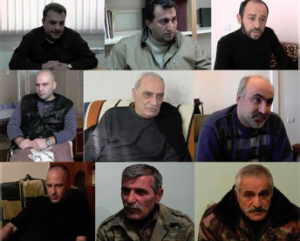 What remains in the backdrop of the military fanfare and the loud speeches of government officials are the stories of those who fought and bled for the liberation of Artsakh. With all the pride that the Armenian political establishment takes in the victory in this war, these same politicians have failed to take proper care of those who risked their lives and sacrificed their health to give us a free Artsakh. Obviously, this is not the only area where the efforts of our government have not been sufficient to address the existing problems. But from the many stories of neglect and betrayal by the state, the story of our freedom fighters is the most embarrassing and painful one.
What remains in the backdrop of the military fanfare and the loud speeches of government officials are the stories of those who fought and bled for the liberation of Artsakh. With all the pride that the Armenian political establishment takes in the victory in this war, these same politicians have failed to take proper care of those who risked their lives and sacrificed their health to give us a free Artsakh. Obviously, this is not the only area where the efforts of our government have not been sufficient to address the existing problems. But from the many stories of neglect and betrayal by the state, the story of our freedom fighters is the most embarrassing and painful one.
This state of affairs is especially dangerous given the ongoing ceasefire violations by Azerbaijan and the constant threat of renewed hostilities. The recent events on the border prove that we must have a strong military with high morale in order to ensure the security of Armenia and Artsakh. That, in turn, requires having a society where those who protect our country have the respect they deserve and receive the treatments they need for wartime wounds and injuries. Without that, our ability to respond to another possible aggression from Azerbaijan significantly weakens, exposing our country to new threats and new dangers. And we know all too well that a failure to properly defend our borders will have detrimental consequences for our people and our statehood.
Under these circumstances, the Armenian youth has an important role to play in filling the void left by the government. We are the generation that enjoys an independent Armenia and a free Artsakh, which would not have been possible without the sacrifice of our freedom fighters. It is our turn to rise to the occasion and honor these heroes, tell their stories, learn from their deeds and help them in their time of need. We should not forget that these guys were not much older than we are (and many were even younger) when they left their homes and took up arms to protect our country. They have had to live with the consequences of that decision ever since, having been deprived of many things that the rest of us take for granted. Showing appreciation and support is the least we can do for those who have sacrificed so much for us.
That is the main reason why the Armenian Youth Federation has proclaimed 2012 as the Year of the Armenian Freedom Fighter. During the course of the year, we have organized a number of events to educate the public about the problems faced by the azadamardiks and to raise funds to assist them in solving their health issues. What we have accomplished so far, though significant, is not sufficient to make the impact we want to make on the lives of freedom fighters in Armenia and Artsakh. This is an issue that should concern not just the AYF, but all Armenians, in the homeland and in the Diaspora alike, and I encourage everyone who is reading these words to join the effort and become a part of the solution to those problems.
The fact that those problems exist and they are deep and serious became very obvious to me when I visited Armenia earlier this year. This short trip – the first one I took since leaving Armenia 20 years ago – left a lasting impact on me and reinforced the urgency and the importance of this campaign. The people I met – the individuals who helped our nation in the time of need – are now in need of help themselves, some confined to a wheelchair, others unable to see due to severe eye injuries and many others incapable of finding work because of various health impairments. As most of Armenia’s population, these men (and women) live in homes built during the Soviet era which have not seen any repairs since the country became independent. Many have no jobs and the ongoing economic problems are compounded by the physical pain from injuries and the unbearable red tape that makes getting medical help through government programs nearly impossible.
I vividly remember the trip to Hrazdan (in the Kotayk province) to visit Armen Begyan, a young man in his late 30’s who was just 19 years old when he joined the newly formed Armenian Armed Forces and went to the front lines. Having fought in Karvajar and Mardakert, Armen was wounded and spent a long time in snow and cold prior to being rescued by his fellow soldiers. As a result, he lost mobility in both of his legs and is now confined to a wheelchair. I found him and the remaining three members of his family in the living room of his small apartment. The family cannot afford to heat the entire home, so they eat, sleep and live in that one room. Armen needs expensive treatments and post-surgery rehabilitation, but obviously cannot afford any of that: his monthly pension is barely enough to cover the cost of food.
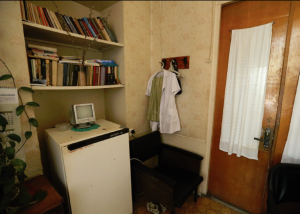 Even in his situation, the proud soldier is not asking for charity. I was surprised to hear that he actually wants to get a special car, which he can use to work and take care of both his family and his medical needs. It is a shame that he has not been given this opportunity by his own country, but we have taken on his cause and want to help this azadamardik become an independent member of the society, something which is very challenging in Armenia for people with mobility issues and something that Armen wants more than anything else.
Even in his situation, the proud soldier is not asking for charity. I was surprised to hear that he actually wants to get a special car, which he can use to work and take care of both his family and his medical needs. It is a shame that he has not been given this opportunity by his own country, but we have taken on his cause and want to help this azadamardik become an independent member of the society, something which is very challenging in Armenia for people with mobility issues and something that Armen wants more than anything else.
In the city of Charentsavan, I met Hamlet Vartanian. He is known by everyone in the small town because of the deformation of the eye (a scary picture) that was caused by the war-time wounds. In 1993, he was actually treated for leg injury and got a blood infection as a result of the unscrupulous ‘care,’ which caused a damage in his nerve and resulted in the shift of the pupil of his eye. The condition is not only uncomfortable since Hamlet lives in constant pain and under the close scrutiny of the local kids, but also dangerous for his overall health. He has waited for 15 years to start living a normal life, to have a family and build a better future for him and his mother. That will not be possible unless we all show our support to this azadmardik.
I had a particularly inspiring encounter with a man named Mikayel Apresian, who was a commander of the ‘Artsakh’ military unit during the war. When I walked into his small one-bedroom apartment in the suburb of Yerevan, a gray-haired man in his 70’s (or so it seemed; in fact, he was only 57) slowly approached me, breathing heavily and with great difficulty. Mikayel had a distinguished military career, and in both his actions and his speech, one could see the once charismatic commander who led his men towards many victories. I spent a long time talking to him about the war, his comrades, and his life since he retired. Mikayel did not want to talk about his condition, which, as I found out, was already hopeless: he had been diagnosed with cancer. With a weak voice interrupted with severe coughs, he told me some of the most memorable stories I heard during my trip. Towards the end of our conversation, his friend asked for help in paying for MIkayel’s chemotherapy. Unfortunately, the cancer had spread too far and wide by then, and it was too late to stop its destructive work. Mikayel Apresian passed away shortly after my return to the US.
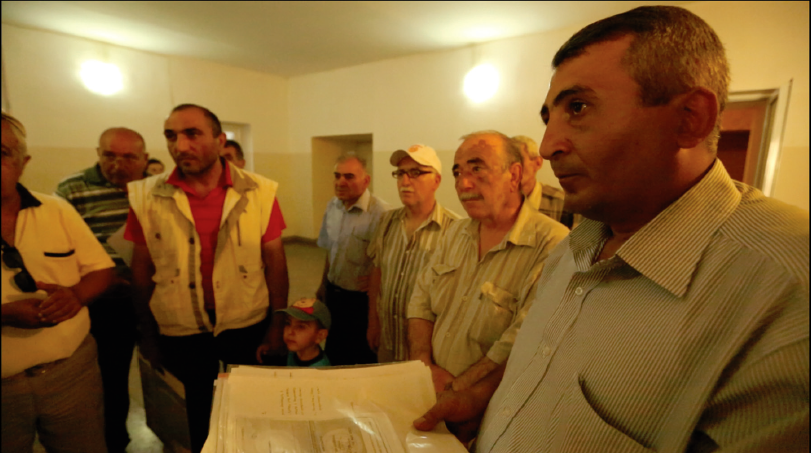
Mikayel’s death is a testament to the urgency of the situation. Our freedom fighters have endured enough in the battlefield and they deserve a better treatment from all of us. Most of them, unwilling to discuss their medical needs, were more concerned (or as it seemed to me, disappointed) by the simple lack of attention from the authorities and the public at large. They neither complain about their conditions nor demand too much from people around them. More often than not, we use this modesty as an excuse to ignore their needs until one day it is too late to do anything. As an Armenian, I am ashamed that we have to deal with these problems a generation after the war, but I also know that if we do not do something about this issue today, tomorrow might be too late.
The last thing I wanted to share about my trip is the deep feeling of respect and admiration that I developed towards these individuals during the course of my visit. At the end of our interviews, I asked each of them whether they would choose to do the same thing if they had a chance to go back in time. The answer that I invariably received was a unanimous and an unwavering ‘Yes.’ Despite the years of neglect, pain, suffering, and deprivation these people are still the soldiers that our nation can count on in the time of need. They are not just a part of the story of our glorious past; they can and will be the writers of the story of our future.
It is up to all of us, me and you, to help them write that story. We owe it to them and to ourselves to give these people the chance to have normal lives as a way of expressing our deep gratitude for their service to our nation and the gift that they have given to our generation – the gift of a free and independent Artsakh. That gift must be cherished and preserved so that we can add new victories to the liberation of Artsakh and make our shared dream of a free, independent and united Armenia a reality in our lifetime.

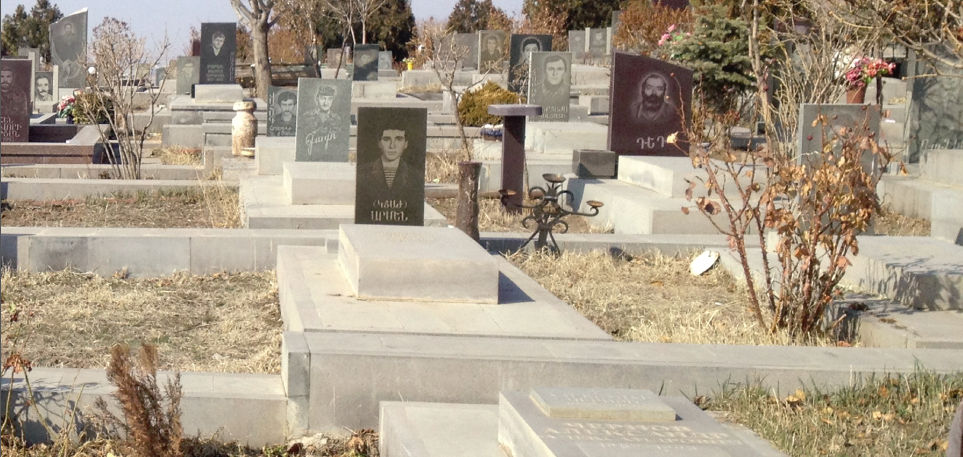
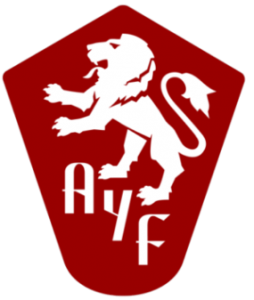
Leave a Reply
Want to join the discussion?Feel free to contribute!